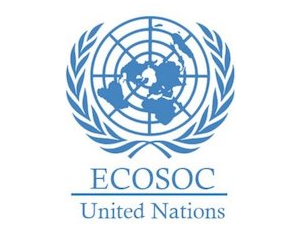New MCAT Means Greater Need for Global Health Exposure
The New MCAT – Shaping Future Physicians for the Better
For pre-medical students their life choices are often defined by the MCAT—the often-dreaded U. S. medical school entrance exam that determines whether their professional dreams are dashed or realized. Rarely do we consider that what we test and emphasize on such exams determines what is prioritized in undergraduate education and consequently what we value in future physicians.
 The MCAT 2015, a revised version of the test recently announced, will refine this vetting metric to select for more well-rounded, culturally aware students by including new sections on “Psychological, Social, and Biological Foundations of Behavior” and “Critical Analysis and Reasoning Skills.” The changes to the MCAT are reflective of the human needs resulting from the demographic shifts both globally and in the US, which require medical professionals to develop empathetic communication skills, cultural competencies, and a recognition that the parameters of health go beyond the clinical setting.
The MCAT 2015, a revised version of the test recently announced, will refine this vetting metric to select for more well-rounded, culturally aware students by including new sections on “Psychological, Social, and Biological Foundations of Behavior” and “Critical Analysis and Reasoning Skills.” The changes to the MCAT are reflective of the human needs resulting from the demographic shifts both globally and in the US, which require medical professionals to develop empathetic communication skills, cultural competencies, and a recognition that the parameters of health go beyond the clinical setting.
Global Health Exposure and Its Role
This shift in core educational competencies for medical students makes Child Family Health International (CFHI) programs and global health exposure in general, all the more relevant to the education of pre-medical students. When done appropriately and ethically, global immersion programs create the type of emotional and academic competencies that allow students to see beyond the patient illness to how the local environment and cultural context impact behavior and compliance, both in and out of the clinical setting.
MCAT 2015 will begin to test students on the skills needed to practice and serve patients in the coming decades, as well as bringing a consciousness of the multiple dimensions of health that are highlighted in all of CFHI’s programs. Without a doubt, given these changes in the MCAT and changing expectations of core competencies for health professionals today, CFHI programs are even a more relevant experience for pre-medical and health science students. Thus, there is no better time than now for undergraduate students who aspire to enter the health professionals to take note and re-consider how they will integrate this type of curricular experience while preparing for their chosen health professional fields.
– Adela de la Torre, Ph.D.
Director, Center for Transnational Health, UC Davis
Professor, Chicana/o Studies Department
Search here anything
Categories
- Academic Partnerships (4)
- CFHI Model (28)
- Cultural Humility (44)
- Ethics (43)
- Gender Equality (1)
- Global Health (68)
- Global Health Education (88)
- Global Health Elective (34)
- Human Rights (1)
- LGBT (1)
- Local Experts (51)
- medical electives (41)
- Promotional Works (1)
- Public Health (18)
- Rotations (29)
- Student Spotlight (7)
- study abroad (10)
- Uncategorized (35)
- Volunteering internationally (50)
Tags
Categories
- Academic Partnerships (4)
- CFHI Model (28)
- Cultural Humility (44)
- Ethics (43)
- Gender Equality (1)
- Global Health (68)
- Global Health Education (88)
- Global Health Elective (34)
- Human Rights (1)
- LGBT (1)
- Local Experts (51)
- medical electives (41)
- Promotional Works (1)
- Public Health (18)
- Rotations (29)
- Student Spotlight (7)
- study abroad (10)
- Uncategorized (35)
- Volunteering internationally (50)





